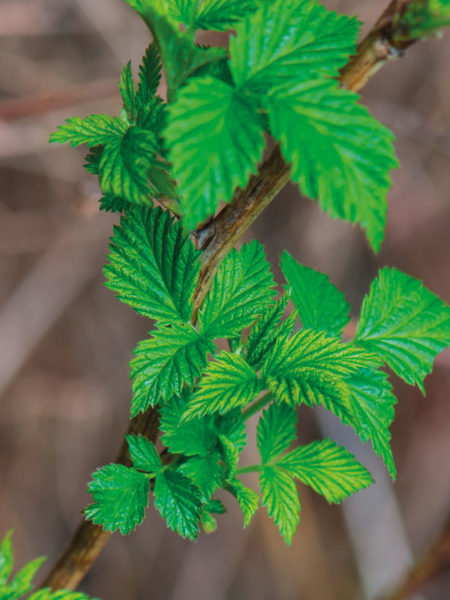Raspberry (Rubus idaeus)

The raspberry bush belongs to the rose family. In everyday life, we usually only notice the raspberry because of its delicious healthy fruits. However, raspberry leaves in particular have a long tradition in folk medicine. In recent years, modern pharmacology has also become increasingly concerned with raspberry leaves due to their observed effectiveness in the period close to childbirth.
Raspberry leaves are rich in tannins, flavonoids and mucilage. They also contain a lot of vitamin C as well as calcium and iron.
Raspberry leaves are used in folk medicine and empirical medicine because of their oestrogen-like effect, especially in “women’s teas”. Experienced midwives have always used teas containing raspberry leaves in the last weeks of pregnancy and in preparation for birth, to ease the birth and to shorten the opening phase. They strengthen the tissue, relax the muscles of the uterus and reduce bleeding after birth.
In addition to these uses, the astringent, anti-inflammatory and stimulating raspberry leaves are also traditionally used for stomach complaints, diarrhoea, haemorrhoids, fever and colds, as a gargle solution for inflammation of the mouth and throat and even for mood swings.